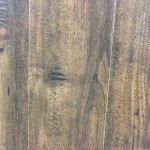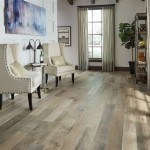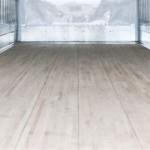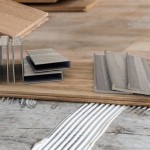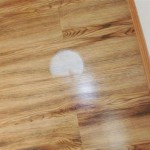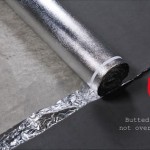Hardwood Vinyl Flooring: A Comprehensive Guide
Hardwood vinyl flooring, also known as wood-look vinyl or luxury vinyl plank (LVP) flooring, has become a popular choice for homeowners and businesses alike. This flooring option offers the aesthetic appeal of natural hardwood floors while providing enhanced durability, water resistance, and ease of maintenance. This article will explore the various aspects of hardwood vinyl flooring, including its composition, types, benefits, installation, maintenance, and considerations when choosing the right product for a specific application.
Hardwood vinyl flooring is engineered to mimic the appearance of authentic wood. It achieves this through high-resolution photographic layers that reproduce the grain patterns, textures, and colors of various hardwood species. These layers are then protected by a durable wear layer, which safeguards the flooring against scratches, dents, and stains. The core of the plank or tile is typically constructed from multiple layers of vinyl polymer, providing stability and resistance to moisture.
The layering construction of hardwood vinyl is crucial to its performance. A typical structure includes:
- Wear Layer: The topmost layer, providing protection against wear and tear. Measured in mils (thousandths of an inch), a thicker wear layer indicates greater durability.
- Print Layer: This layer features the high-resolution image of the desired wood species, creating the realistic look.
- Core Layer: The core layer provides stability and water resistance. It can be made from various materials, including rigid vinyl, WPC (wood-plastic composite), or SPC (stone-plastic composite).
- Backing Layer: The bottom layer, often providing cushioning and sound insulation.
Types of Hardwood Vinyl Flooring
Hardwood vinyl flooring is available in several different types, each with its own characteristics and benefits. The most common types include luxury vinyl plank (LVP), luxury vinyl tile (LVT), and sheet vinyl. The core construction also dictates sub-categories, most notably differentiating between WPC and SPC vinyl.
Luxury Vinyl Plank (LVP): LVP is designed to replicate the look of hardwood planks. It typically comes in long, narrow strips and features realistic wood grain patterns and textures. LVP is often thicker than sheet vinyl and offers greater durability and dimensional stability. This makes it a better option for high-traffic areas and rooms prone to moisture exposure. LVP is generally available in both flexible and rigid core options.
Luxury Vinyl Tile (LVT): LVT mimics the appearance of ceramic, porcelain, or stone tiles. While not directly mimicking hardwood, the manufacturing process and layered construction are similar, and LVT is often considered alongside LVP when exploring flooring options. LVT comes in square or rectangular shapes and can be installed with or without grout. Like LVP, LVT is durable, water-resistant, and easy to maintain.
Sheet Vinyl: Sheet vinyl comes in large rolls and is installed as a single, seamless sheet. It is available in a wide variety of patterns and colors, including wood-look designs. Sheet vinyl is a cost-effective option for large areas, but it is generally less durable and less realistic-looking than LVP or LVT. It's also more susceptible to tearing and damage.
WPC Vinyl: Wood-Plastic Composite (WPC) vinyl features a core made from a blend of wood pulp and plasticizers. This composition results in a softer, more cushioned feel underfoot and improved sound absorption. WPC is generally more comfortable than SPC vinyl but may be slightly less resistant to indentation.
SPC Vinyl: Stone-Plastic Composite (SPC) vinyl boasts a core composed of limestone powder and stabilizers. This creates a very dense and rigid core, making SPC exceptionally durable and resistant to impact and indentation. SPC is an excellent choice for high-traffic areas and commercial applications. It is also typically more water-resistant than WPC vinyl.
Benefits of Hardwood Vinyl Flooring
Hardwood vinyl flooring offers a range of compelling benefits that contribute to its growing popularity. These benefits extend beyond aesthetics, addressing crucial aspects of practicality, durability, and cost-effectiveness.
Durability and Wear Resistance: The wear layer protects the flooring from scratches, scuffs, and stains. Higher mil wear layers provide superior protection, making the flooring suitable for high-traffic areas and homes with pets or children. This durability translates into a longer lifespan for the flooring, reducing the need for frequent replacements.
Water Resistance: Hardwood vinyl flooring is significantly more water-resistant than solid hardwood. This makes it an ideal choice for kitchens, bathrooms, laundry rooms, and basements, where moisture exposure is a concern. While some variations are considered waterproof, it's crucial to understand the difference in terms of submersion and prolonged exposure.
Ease of Maintenance: Hardwood vinyl flooring is easy to clean and maintain. Regular sweeping or vacuuming is typically sufficient to remove dirt and debris. For more thorough cleaning, a damp mop and mild detergent can be used. The surface is also resistant to staining, simplifying the removal of spills and messes.
Realistic Appearance: Advanced printing technology allows hardwood vinyl flooring to convincingly replicate the look of natural wood. Embossed textures further enhance the realism, creating a visually appealing and authentic aesthetic.
Cost-Effectiveness: Hardwood vinyl flooring is generally more affordable than solid hardwood. The lower material costs and easier installation contribute to overall cost savings. This makes it an attractive option for budget-conscious homeowners who still desire the look of wood flooring.
Ease of Installation: Many hardwood vinyl flooring options are designed for easy installation. Click-lock systems allow planks or tiles to be quickly and securely connected without the need for adhesives. This simplifies the installation process for both DIY enthusiasts and professional installers.
Comfort and Sound Insulation: Some hardwood vinyl flooring options feature a cushioned backing layer, which provides added comfort underfoot and reduces noise transmission. This can be particularly beneficial in multi-story homes or apartments.
Versatility: Hardwood vinyl flooring can be installed in a wide range of settings, from residential homes to commercial spaces. Its durability and water resistance make it suitable for various applications, including living rooms, bedrooms, kitchens, bathrooms, offices, and retail stores.
Installation Considerations
Proper installation is crucial to ensure the longevity and performance of hardwood vinyl flooring. While many options are designed for easy DIY installation, it's essential to follow the manufacturer's instructions carefully. The following considerations should be taken into account before, during, and after the installation process.
Subfloor Preparation: A smooth, level, and clean subfloor is essential for a successful installation. Any imperfections in the subfloor can telegraph through the vinyl flooring, creating unevenness or damage. The subfloor may need to be repaired or leveled before installation. It is crucial to ensure the subfloor is free of moisture and any existing adhesives or coatings.
Acclimation: Allowing the hardwood vinyl flooring to acclimate to the room's temperature and humidity is crucial to prevent expansion or contraction after installation. The manufacturer's instructions will specify the recommended acclimation period, which is typically 48-72 hours.
Direction of Installation: The direction in which the planks or tiles are installed can affect the overall appearance of the room. Typically, running the planks parallel to the longest wall can make the room appear larger. However, personal preference and the specific layout of the room should be considered.
Cutting and Fitting: Accurate cutting and fitting of the planks or tiles are essential for a professional-looking installation. A utility knife or flooring cutter can be used to cut the planks or tiles to size. Leave an expansion gap around the perimeter of the room to allow for natural expansion and contraction.
Click-Lock Systems: Click-lock systems simplify the installation process by allowing the planks or tiles to be easily connected without adhesives or nails. Follow the manufacturer's instructions for proper locking and alignment.
Adhesive Installation: Some hardwood vinyl flooring options require adhesive for installation. Ensure the correct type of adhesive is used and apply it evenly according to the manufacturer's instructions.
Post-Installation: After installation, clean the flooring thoroughly to remove any dirt or debris. Avoid heavy foot traffic for at least 24 hours to allow the flooring to fully settle. Install baseboards and trim to cover the expansion gap and create a finished look.
Selecting the appropriate underlayment is important. While some LVP and LVT products have attached underlayment, others require a separate layer. Underlayment can provide added cushioning, sound insulation, and moisture protection.
For floating floors, it's essential to maintain the expansion gap around the perimeter of the room. This gap allows the floor to expand and contract with changes in temperature and humidity, preventing buckling or warping.
When installing over concrete subfloors, it's crucial to test for moisture levels. Excessive moisture can damage the vinyl flooring and lead to mold or mildew growth. A moisture barrier may be necessary to protect the flooring from below.
Professional installation is recommended for complex layouts or when dealing with uneven subfloors. Experienced installers have the tools and expertise to ensure a proper and long-lasting installation.
Maintenance and Care
Hardwood vinyl flooring is relatively easy to maintain, but following a few simple guidelines can help extend its lifespan and preserve its appearance.
Regular Cleaning: Sweep or vacuum the floor regularly to remove dirt, dust, and debris. This prevents scratches and dulling of the wear layer.
Damp Mopping: Mop the floor with a damp mop and mild detergent as needed. Avoid using excessive water, as this can seep into the seams and cause damage. Ensure the mop is wrung out thoroughly.
Avoid Harsh Chemicals: Avoid using harsh chemicals, abrasive cleaners, or scouring pads, as these can damage the wear layer and dull the finish. Use pH-neutral cleaners specifically designed for vinyl flooring.
Protect from Furniture: Use furniture pads under the legs of tables, chairs, and sofas to prevent scratches and dents. Avoid dragging heavy furniture across the floor.
Prevent Sunlight Damage: Prolonged exposure to direct sunlight can cause fading or discoloration. Use curtains or blinds to protect the flooring from excessive UV exposure.
Clean Spills Immediately: Clean up spills immediately to prevent staining. Use a clean, damp cloth to blot the spill and dry the area thoroughly.
Avoid Rubber-Backed Mats: Avoid using rubber-backed mats or rugs, as they can trap moisture and discolor the flooring. Use mats with a breathable backing.
Entryway Mats: Place mats at entryways to trap dirt and debris and prevent it from being tracked onto the floor.
For stubborn stains, try using a mixture of water and baking soda or a commercially available vinyl floor cleaner. Always test the cleaner in an inconspicuous area first to ensure it does not damage the flooring.

Tranquility Ultra 5mm Rustic Reclaimed Oak Waterproof Luxury Vinyl Plank Flooring 6 65 In Wide X 48 Long Ll

Tranquility Xd 4mm Rail Tie Oak Waterproof Luxury Vinyl Plank Flooring 7 08 In Wide X 48 Long Ll

Lifeproof Red Rosewood Wood Residential Light Commercial Vinyl Sheet Flooring 12ft Wide X Cut To Length U9790537c832l14 The Home Depot

Types Of Vinyl Flooring The Home Depot

Not Your Father S Vinyl Floor

Hardwood Vs Luxury Vinyl Plank Flooring The Creative Kitchen Co

Xl Ridge Waterproof 8 5mm Lock Luxury Vinyl Plank Flooring Builddirect

Vinyl Vs Hardwood Indistinguishable Flooring Choices
Everything You Need To Know About Vinyl Flooring Tarkett

Tranquility Ultra 5mm River Walk Oak Waterproof Luxury Vinyl Plank Flooring 6 In Wide X 48 Long Ll


